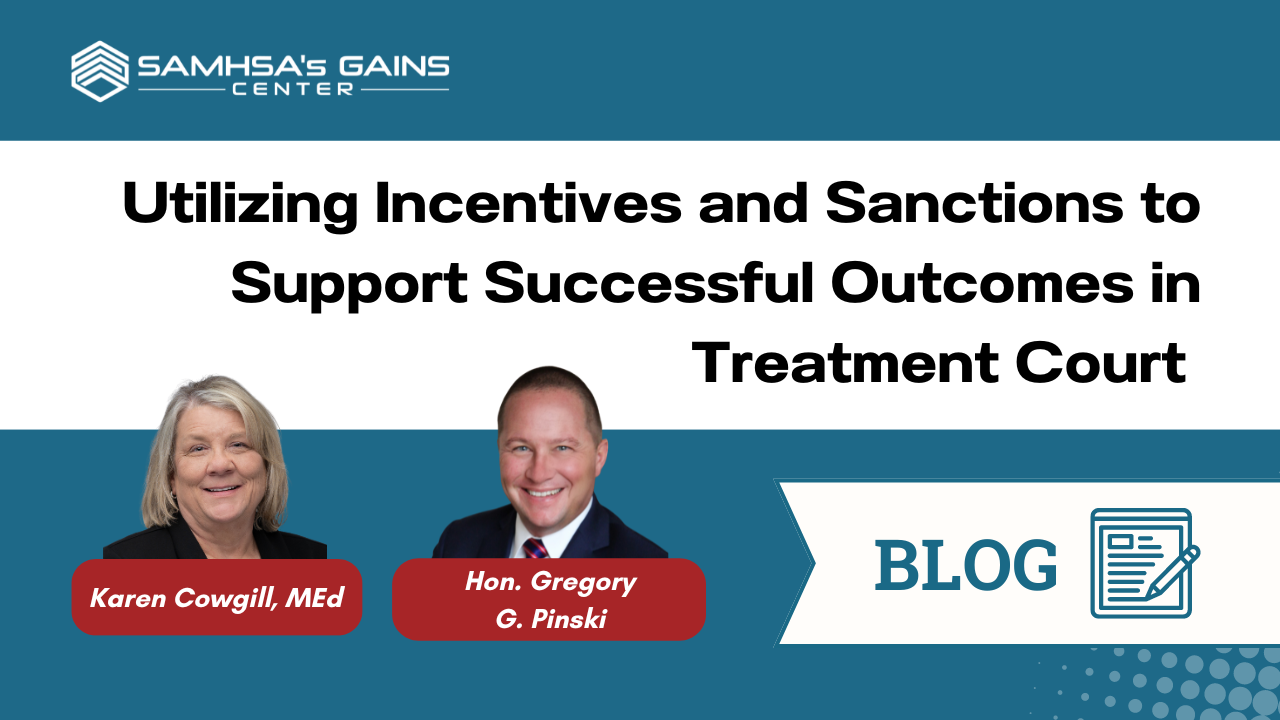Incentives and sanctions are used in treatment courts to support or discourage certain behaviors from participants, but not all options have proven to be effective for change. In a recent webinar, SAMHSA’s GAINS Center shared how to successfully deploy incentives and sanctions for change within a treatment court setting, explaining ways to respond to behavioral health non-adherence in a clinical way rather than with traditional punitive approaches. The following are the key takeaways for professionals in the criminal legal and mental health fields from this webinar, “Utilizing Incentives and Sanctions to Support Successful Outcomes in Treatment Court.”
- Use individualized responses: Customizing incentives and sanctions based on individual needs, their phase in the program, and specific behaviors is fundamental to effective treatment.
- Understand the participant’s context: Assessing the risk and need levels, along with understanding the reasons behind a participant’s behavior, is essential in deciding appropriate responses.
- Use creative sanctions and incentives: Innovative approaches, like decision dollars or photo books documenting progress, can be highly motivating and cost-effective.
- Engage participants in developing programs: Engaging participants in creating the incentive program ensures the development of desirable and motivating incentives.
- Address reluctance to participate: Patience and tailored interventions are key in engaging participants who show initial reluctance or resistance.
- Avoid phase demotion: Phase demotion can have a demoralizing impact; focus instead on addressing specific needs within the current phase.
- Understand the importance of time-based incentives: Structuring incentives around specific timeframes can be highly effective, as it resonates strongly with the participant’s daily experiences.
- Emphasize long-term recovery goals: Focus on long-term recovery and not just abstinence from use by encouraging pro-social activities and community engagement.
- Access resources and training: Utilize existing resources and training opportunities and reach out to established courts for guidance and policy examples.
- Stay informed on research-backed approaches: The updated standards and practices are backed by extensive research, emphasizing the importance of evidence-based approaches in treatment courts.
When drug court practices center on the participant’s experience, using incentives and sanctions can successfully lead to better outcomes, promoting long-term recovery and reducing recidivism. Tailored approaches go beyond immediate compliance to fostering a deeper change in behavior and mindset. For detailed information about how these principles play out in practice, watch the full webinar.
This blog post was developed with the assistance of generative artificial intelligence.


